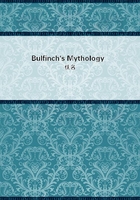
第94章
He had armed himself and was about to mingle with the combatants, but was prevailed on by Hecuba, his aged queen, to take refuge with herself and his daughters as a suppliant at the altar of Jupiter. While there, his youngest son Polites, pursued by Pyrrhus (Pyrrhus's exclamation, "Not such aid nor such defenders does the time require," has become proverbial.), the son of Achilles, rushed in wounded, and expired at the feet of his father; whereupon Priam, overcome with indignation, hurled his spear with feeble hand against Pyrrhus, and was forthwith slain by him.
Queen Hecuba and her daughter Cassandra were carried captives to Greece. Cassandra had been loved by Apollo, and he gave her the gift of prophecy; but afterwards offended with her, he rendered the gift unavailing by ordaining that her predictions should never be believed. Polyxena, another daughter, who had been loved by Achilles, was demanded by the ghost of this warrior, and was sacrificed by the Greeks upon his tomb.
>From Schiller's poem "Cassandra":
"And men my prophet wail deride!
The solemn sorrow dies in scorn;
And lonely in the waste, I hide The tortured heart that would forewarn.
Amid the happy, unregarded, Mock'd by their fearful joy, I trod;Oh, dark to me the lot awarded, Thou evil Pythian God!
"Thine oracle, in vain to be, Oh, wherefore am I thus consigned, With eyes that every truth must see, Lone in the city of the blind?
Cursed with the anguish of a power To view the fates I may not thrall, The hovering tempest still must lower, The horror must befall!
Boots it th veil to lift, and give To sight the frowning fates beneath?
For error is the life we live, And, oh, our knowledge is but death!
Take back the clear and awful mirror, Shut from my eyes the blood-red glare;Thy truth is but the gift of terror, When mortal lips declare.
"My blindness give to me once more, They gay dim senses that rejoice;The past's delighted songs are o'er For lips that speak a prophet's voice.
To me the future thou hast granted;
I miss the moment from the chain The happy present hour enchanted!
Take back thy gift again!"
Sir Edw. L. Bulwer's translation MENELAUS AND HELENOur readers will be anxious to know the fate of Helen, the fair but guilty occasion of so much slaughter. On the fall of Troy Menelaus recovered possession of his wife, who had not ceased to love him, though she had yielded to the might of Venus and deserted him for another. After the death of Paris she aided the Greeks secretly on several occasions, and in particular when Ulysses and Diomedes entered the city in disguise to carry off the Palladium. She saw and recognized Ulysses, but kept the secret, and even assisted them in obtaining the image. Thus she became reconciled to her husband, and they were among the first to leave the shores of Troy for their native land. But having incurred the displeasure of the gods they were driven by storms from shore to shore of the Mediterranean, visiting Cyprus, Phoenicia and Egypt. In Egypt they were kindly treated and presented with rich gifts, of which Helen's share was a golden spindle and a basket on wheels. The basket was to hold the wool and spools for the queen's work.
Dyer, in his poem of The Fleece, thus alludes to the incident:
"_________many yet adhere To the ancient distaff at the bosom fixed.
Casting the whirling spindle as they walk.
. . . . . . . . . .
This was of old, in no inglorious days, The mode of spinning, when the Egyptian prince A golden distaff gave that beauteous nymph, Too beauteous Helen; no uncourtly gift."Milton also alludes to a famous recipe for an invigorating draught, called Nepenthe, which the Egyptian queen gave to Helen:
"Not that Nepenthes which the wife of Thone In Egypt gave to Jove-born Helena, Is of such power to stir up joy as this, To life so friendly or so cool to thirst."Comus Menelaus and Helen at length arrived in safety at Sparta, resumed their royal dignity, and lived and reigned in splendor; and when Telemachus, the son of Ulysses, in search of his father, arrived at Sparta, he found Menelaus and Helen celebrating the marriage of their daughter Hermione to Neoptolemus, son of Achilles.
In "the Victory Feast," Schiller thus reviews the return of the Greek heroes.
"The son of Atreus, king of men, The muster of the hosts surveyed, How dwindled from the thousands, when Along Scamander first arrayed!
With sorrow and the cloudy thought, The great king's stately look grew dim, Of all the hosts to Ilion brought, How few to Greece return with him!
Still let the song to gladness call, For those who yet their home shall greet!
For them the blooming life is sweet;
Return is not for all!
"Nor all who reach their native land May long the joy of welcome feel;Beside the household gods may stand Grim Murder, with awaiting steel And they who 'scape the foe, may die Beneath the foul, familiar glaive.
Thus he to whom prophetic eye Her light the wise Minerva gave;'Ah! Bless'd, whose hearth, to memory true The goddess keeps unstained and pure;For woman's guile is deep and sure, And falsehood loves the new!'
"The Spartan eyes his Helen's charms, By the best blood of Greece recaptured;Round that fair form his glowing arms (A second bridal) wreath, enraptured.
Woe waits the work of evil birth, Revenge to deeds unblessed is given!